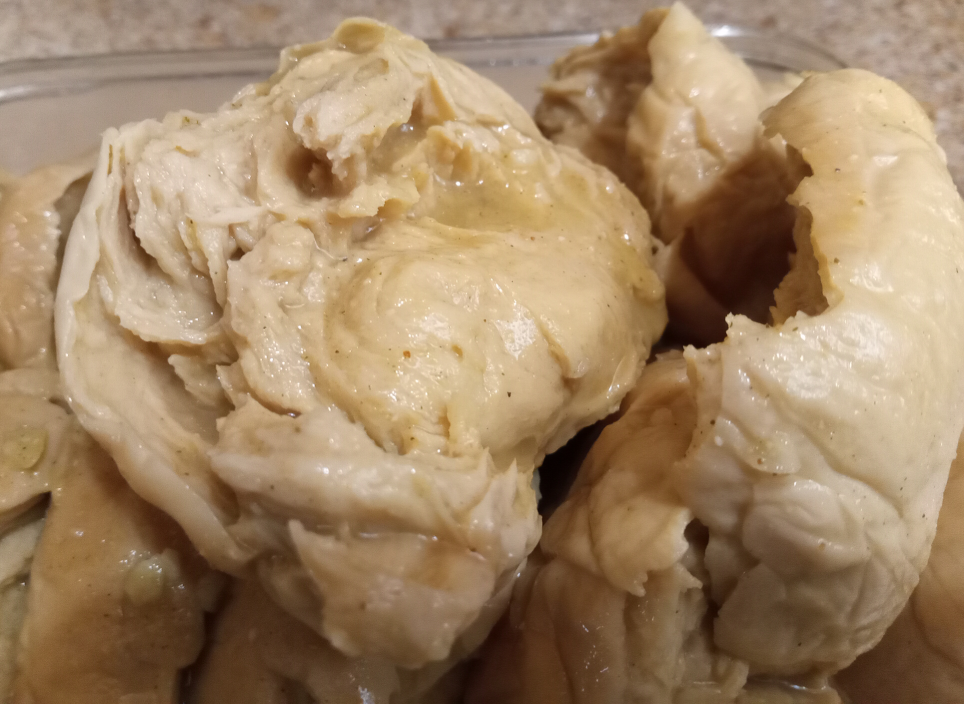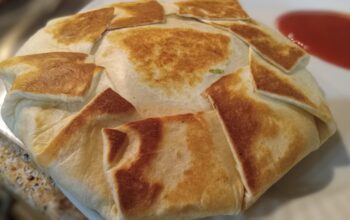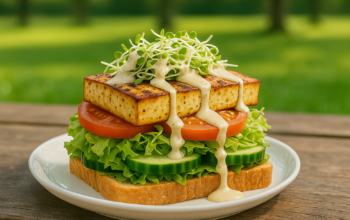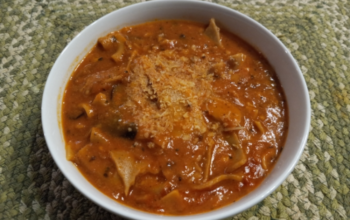Hearty Chicken Substitute
(Inspired by School Night Vegan)
This recipe is a personal adaptation of the original Vegan Chicken recipe by School Night Vegan. While his version inspired the foundation, I’ve modified it to reflect plant-based principles aligned with Seventh-Day Adventist dietary values. I removed ingredients like vinegar and wine, and substituted them with wholesome, natural alternatives like lemon juice and homemade plant-based chicken broth. Since I first posted this recipe, I continue experimenting on this recipe; so, below is my updated recipe.
This version also includes a pressure cooker option for those looking to save time without compromising texture or flavor. The result? A deeply savory, protein-rich vegan chicken that’s perfect for sandwiches, stir-fries, Sabbath lunches, or hearty dinner bowls.
This vegan chicken is more than just a meat substitute. It’s built with whole plant-based ingredients that offer remarkable health benefits. Like always, I briefly detail the health benefits as well the nutritional make up the food below. I always ask my readers to search these things out for themselves from credible sources. I just give you a starting point.
Let’s look first at cannellini beans. Cannellini beans are large white beans with a mild, nutty flavor and a creamy texture. They’re an excellent source of plant-based protein and fiber, which makes them great for supporting digestion and keeping you full. These beans are rich in iron, magnesium, folate, phosphorus, and potassium. Eating cannellini beans regularly may help manage blood sugar levels, reduce cholesterol, and improve heart health. Their antioxidant content contributes to protecting cells against damage, and their fiber promotes a healthy gut microbiome. (See Healthline for more: Healthline)
Now let’s talk about tofu. Tofu is made from soybeans and is widely recognized as a complete protein, meaning it contains all nine essential amino acids. It’s naturally low in calories and provides beneficial amounts of iron, calcium, magnesium, and zinc. Tofu is an excellent option for plant-based eaters due to its versatility and nutritional density. Research shows that soy-based foods like tofu may help reduce the risk of heart disease by improving cholesterol levels and supporting healthy blood vessels (see Medical News Today: Medical News Today).
Next, let’s explore miso. Miso is a fermented paste made from soybeans and salt. It’s rich in probiotics that support gut health and may help improve digestion, immune function, and even mood. It provides protein, manganese, vitamin K, copper, and zinc. Miso consumption has been linked to reduced risk of certain cancers and better cardiovascular health. Its fermentation process also contributes to beneficial enzymes and makes its nutrients more bioavailable. (See Healthline: Healthline)
Lastly, let’s look at vital wheat gluten. Vital wheat gluten is the protein-rich portion of wheat flour and is commonly used in vegan cooking to create seitan, which a chewy, meat-like meat substitute. Just a small amount packs a powerful protein punch, offering about 21 grams of protein per ¼ cup. It’s also low in fat and carbohydrates, making it a great option for those looking to boost protein without packing on excess calories. (See Verywell Fit)
Now, without further ado …
Hearty Chicken Substitute
Ingredients (updated 10/2/2025)
For Chicken Substitute:
- 10 oz extra firm tofu
- 1 can (15 oz) cannellini beans, including soaking liquid
- 6 tbsp neutral oil (divided)
- 2 tbsp no-chicken broth powder
- 2 tbsp nutritional yeast
- 2 tbsp white miso paste
- 1 tsp. flakey salt (optional)
- 2 tsp lemon juice
- 1 tsp liquid aminos
- 1 tsp garlic powder
- 2½ cups vital wheat gluten
For the Brine:
- 1 tsp. no-chicken broth powder (see your homemade recipe)
- 2-4 tbsp liquid aminos
- 2 cups just boiled water
- 4 bay leaves (optional)
Instructions
To Make the Vegan Chicken
- In a high-speed blender, combine tofu, beans (with their water), 3 tbsp oil, broth powder, garlic powder, miso, lemon juice, liquid aminos, and garlic powder. Blend on low until ingredients break down and then increase speed until smooth. This may take a few minutes. Be sure everything is well incorporated.
- Add wheat gluten in a food processor.
- Pour in blended ingredients and process until smooth and stretchy.
- Add the remaining 3 tbsp oil and process again.
- Divide dough into 8 portions and shape into fillets by folding edges under.
- Wrap each fillet first in parchment paper, then tightly in aluminum foil. Make sure the wrapping is secure enough to help the fillets hold their shape while steaming.
🌡️ Cooking Options
Option 1 — Stovetop Steamer
- Steam wrapped fillets over medium heat for 1 hour.
- They should feel firm and bouncy.
Option 2 — Pressure Cooker
- In a traditional pressure cooker, place steaming rack and fill with enough water 5-6 quarts and bring to a boil. (Note: If you have an instant point, following steaming its directions.)
- Arrange fillets above the water.
- Seal and bring to high pressure; cook for 40 minutes.
- Let pressure release naturally.
- Cool fillets for 20 minutes before unwrapping, whichever steaming method is used.
To Make the Brine
- Boil water and mix boiled water with broth powder, liquid aminos, and bay leaves.
- Unwrap fillets, at side seam, pull each fillet in using your hand.
- Place torn fillets in a dish.
- Mix boiled water with broth powder, salt, and bay leaves.
- Pour hot brine over the fillets, being sure they are well submerged.
- Cover and let cool, then refrigerate at least 8-12 hours (or overnight).
To Serve
- You may shred with forks for pulled-style dishes, slice in chunks with a knife, or tear them by hand.
- Stores in fridge for 5 days or freeze for long-term use.
Protein & Nutritional Value (per batch of 8 fillets)
Approximate total per batch:
- Protein: ~150–160g (18–20g per fillet)
- Fiber: ~25g total (3–4g per fillet)
- Calories: ~2,000–2,200 total (250–275 per fillet)
- Fats: ~60g (healthy fats from neutral oils)
- Carbohydrates: ~80–100g
- Iron, magnesium, calcium, zinc, and B vitamins are abundant throughout.
This recipe provides a substantial amount of your daily protein needs—particularly important on a plant-based diet—and supports gut health, immunity, and energy production.





